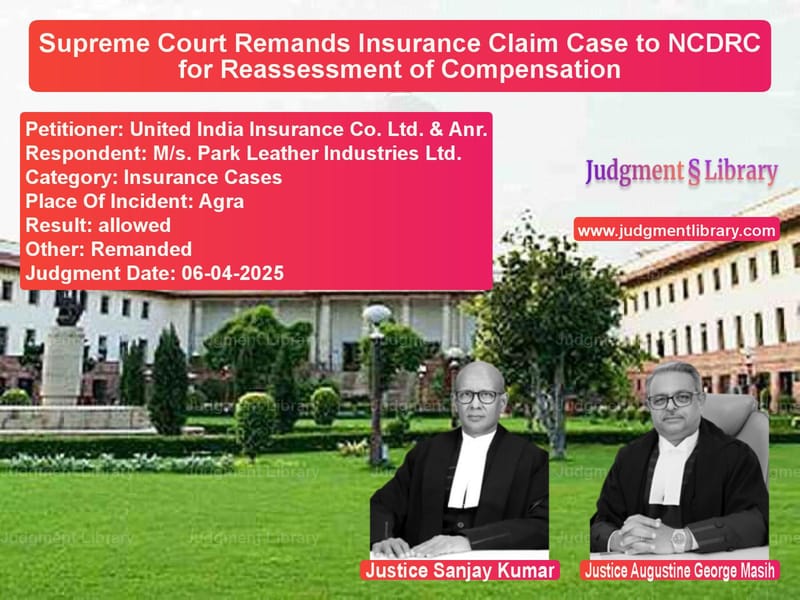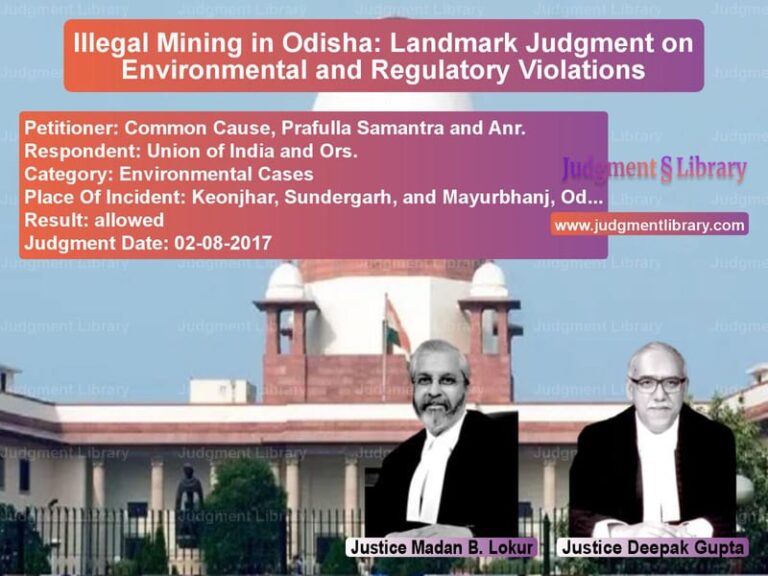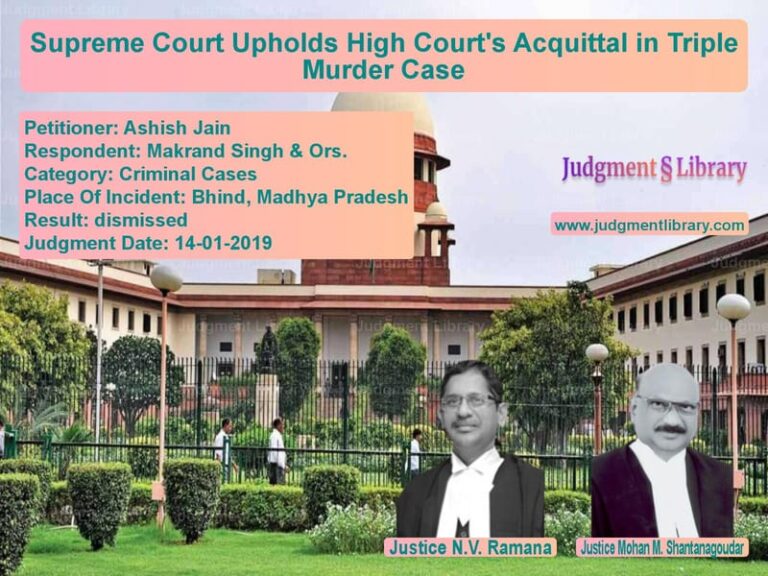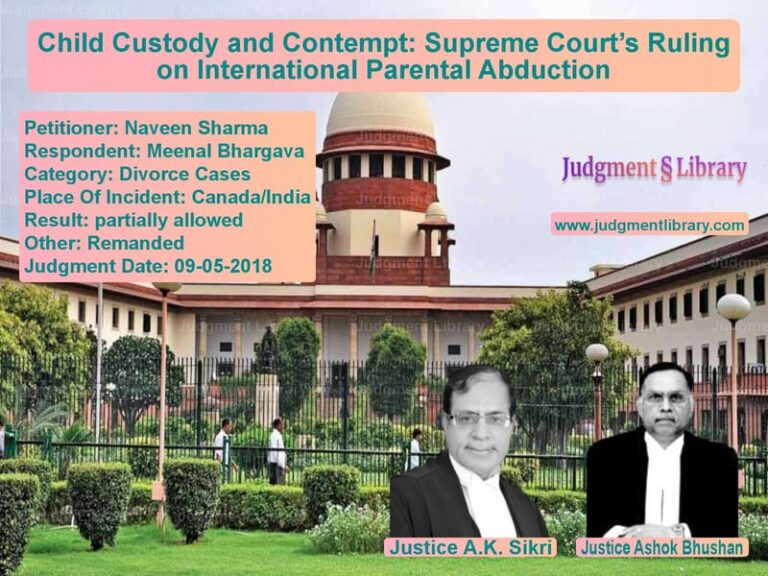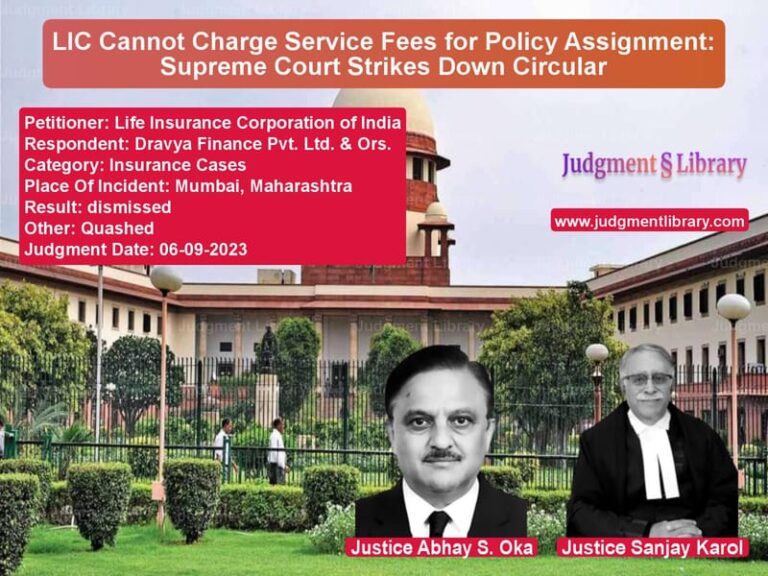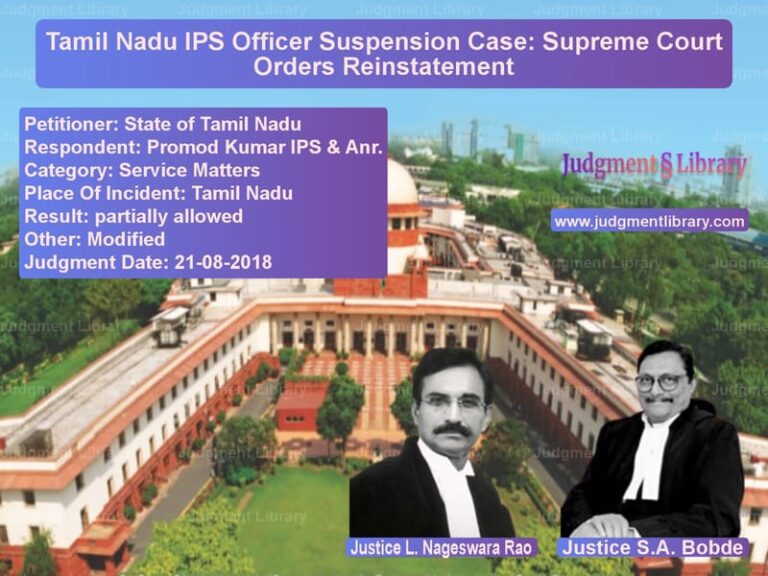Supreme Court Remands Insurance Claim Case to NCDRC for Reassessment of Compensation
The Supreme Court of India recently delivered a judgment in the case of United India Insurance Co. Ltd. & Anr. vs. M/s. Park Leather Industries Ltd., addressing a dispute over an insurance claim arising from the collapse of a factory shed due to heavy rainfall. The case, which has been ongoing since 2008, highlights the complexities involved in assessing insurance claims and the importance of due process in determining compensation.
Background of the Case
The respondent, M/s. Park Leather Industries Ltd., had taken a comprehensive insurance policy from the appellant, United India Insurance Co. Ltd., covering fire and special perils. The policy was active from June 30, 2005, to June 29, 2006. On August 1, 2005, heavy rainfall caused the factory shed to collapse, resulting in significant damage to plant & machinery, stocks, and buildings. The respondent filed an insurance claim for ₹91,00,000/-.
The appellant appointed a surveyor to assess the damage, who estimated the loss at ₹8,89,176/-. However, the insurance company later repudiated the claim, stating that the loss was not due to the insured peril of ‘inundation’ and thus fell outside the policy’s coverage. Aggrieved by this decision, the respondent approached the National Consumer Disputes Redressal Commission (NCDRC).
Arguments Before the NCDRC
The respondent argued that the damage was caused by inundation and claimed compensation of ₹91,50,000/-, along with interest and costs. The appellant contested this, asserting that the loss might have occurred due to gradual weakening of the walls and seepage, which were not covered under the policy. The respondent later submitted a rejoinder, introducing an independent surveyor’s report that assessed the loss at ₹46,97,085/-.
The NCDRC ruled in favor of the respondent, directing the appellant to pay ₹46,97,085/- with interest at 9% per annum from the date of repudiation until realization. The commission based its decision on the appellant’s failure to dispute the assessment made by the respondent’s surveyor in its written statement.
Supreme Court’s Observations
The Supreme Court, in its judgment, noted that the NCDRC’s decision on the quantum of compensation was flawed. The court observed:
‘Paragraph 24, extracted supra, demonstrates that the NCDRC decided the quantum of compensation only on the premise that the appellant had not denied, in its written statement, the assessment made by the respondent’s surveyor. However, the NCDRC completely lost sight of the fact that the aforestated figure of ₹46,97,085/- was sourced from the surveyor’s report which was produced by the respondent, for the first time, along with its rejoinder. Therefore, the appellant could not have denied it in its written statement, which was filed earlier in point of time.’
The court further emphasized that the NCDRC failed to independently assess the compensation and blindly relied on the respondent’s surveyor report without proper scrutiny. The Supreme Court stated:
‘Having noted that the surveyor appointed by the appellant had assessed the damage at a much lesser figure, i.e., ₹8,89,176/-, the NCDRC could not have assumed that the appellant had mutely accepted the enhanced estimation of ₹46,97,085/-, as per the unilateral assessment made by the surveyor appointed by the respondent.’
Supreme Court’s Decision
The Supreme Court allowed the appeal in part and remanded the matter back to the NCDRC for a fresh assessment of the compensation amount. The court directed the NCDRC to allow both parties to adduce evidence and independently determine the payable amount under the insurance policy. The court also requested the NCDRC to expedite the case due to its long pendency.
The amount deposited by the appellant (₹63,60,833/-) was ordered to be transferred to the NCDRC and invested in a fixed deposit until the final decision.
Key Takeaways
- The Supreme Court highlighted the importance of due process and independent assessment in insurance claim disputes.
- The NCDRC’s reliance on a unilateral surveyor report without proper scrutiny was deemed erroneous.
- The case underscores the need for insurers and claimants to present evidence transparently and for adjudicating bodies to evaluate such evidence meticulously.
This judgment serves as a reminder of the judiciary’s role in ensuring fair and just outcomes in insurance disputes, balancing the interests of both insurers and policyholders.
Petitioner Name: United India Insurance Co. Ltd. & Anr..Respondent Name: M/s. Park Leather Industries Ltd..Judgment By: Justice Sanjay Kumar, Justice Augustine George Masih.Place Of Incident: Agra.Judgment Date: 06-04-2025.Result: allowed.
Don’t miss out on the full details! Download the complete judgment in PDF format below and gain valuable insights instantly!
Download Judgment: united-india-insuran-vs-ms.-park-leather-in-supreme-court-of-india-judgment-dated-06-04-2025.pdf
Directly Download Judgment: Directly download this Judgment
See all petitions in Commercial Insurance Disputes
See all petitions in Fire and Property Insurance Cases
See all petitions in Insurance Settlements
See all petitions in Judgment by Sanjay Kumar
See all petitions in Judgment by Augustine George Masih
See all petitions in allowed
See all petitions in Remanded
See all petitions in supreme court of India judgments April 2025
See all petitions in 2025 judgments
See all posts in Insurance Cases Category
See all allowed petitions in Insurance Cases Category
See all Dismissed petitions in Insurance Cases Category
See all partially allowed petitions in Insurance Cases Category

